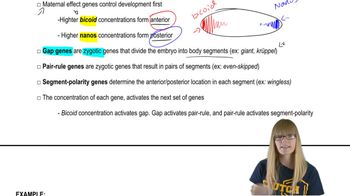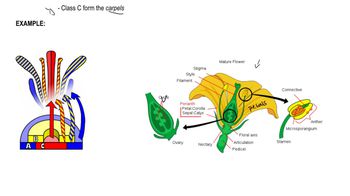- 1. Introduction to Genetics51m
- 2. Mendel's Laws of Inheritance3h 37m
- 3. Extensions to Mendelian Inheritance2h 41m
- 4. Genetic Mapping and Linkage2h 28m
- 5. Genetics of Bacteria and Viruses1h 21m
- 6. Chromosomal Variation1h 48m
- 7. DNA and Chromosome Structure56m
- 8. DNA Replication1h 10m
- 9. Mitosis and Meiosis1h 34m
- 10. Transcription1h 0m
- 11. Translation58m
- 12. Gene Regulation in Prokaryotes1h 19m
- 13. Gene Regulation in Eukaryotes44m
- 14. Genetic Control of Development44m
- 15. Genomes and Genomics1h 50m
- 16. Transposable Elements47m
- 17. Mutation, Repair, and Recombination1h 6m
- 18. Molecular Genetic Tools19m
- 19. Cancer Genetics29m
- 20. Quantitative Genetics1h 26m
- 21. Population Genetics50m
- 22. Evolutionary Genetics29m
Embryogenesis and oncogenesis (generation of cancer) share a number of features including cell proliferation, apoptosis, cell migration and invasion, formation of new blood vessels, and differential gene activity. Embryonic cells are relatively undifferentiated, and cancer cells appear to be undifferentiated or dedifferentiated. Homeotic gene expression directs early development, and mutant expression leads to loss of the differentiated state or an alternative cell identity. M. T. Lewis [(2000). Breast Can. Res. 2:158–169] suggested that breast cancer may be caused by the altered expression of homeotic genes. When he examined 11 such genes in cancers, 8 were underexpressed while 3 were overexpressed compared with controls. Given what you know about homeotic genes, could they be involved in oncogenesis?
 Verified Solution
Verified Solution

